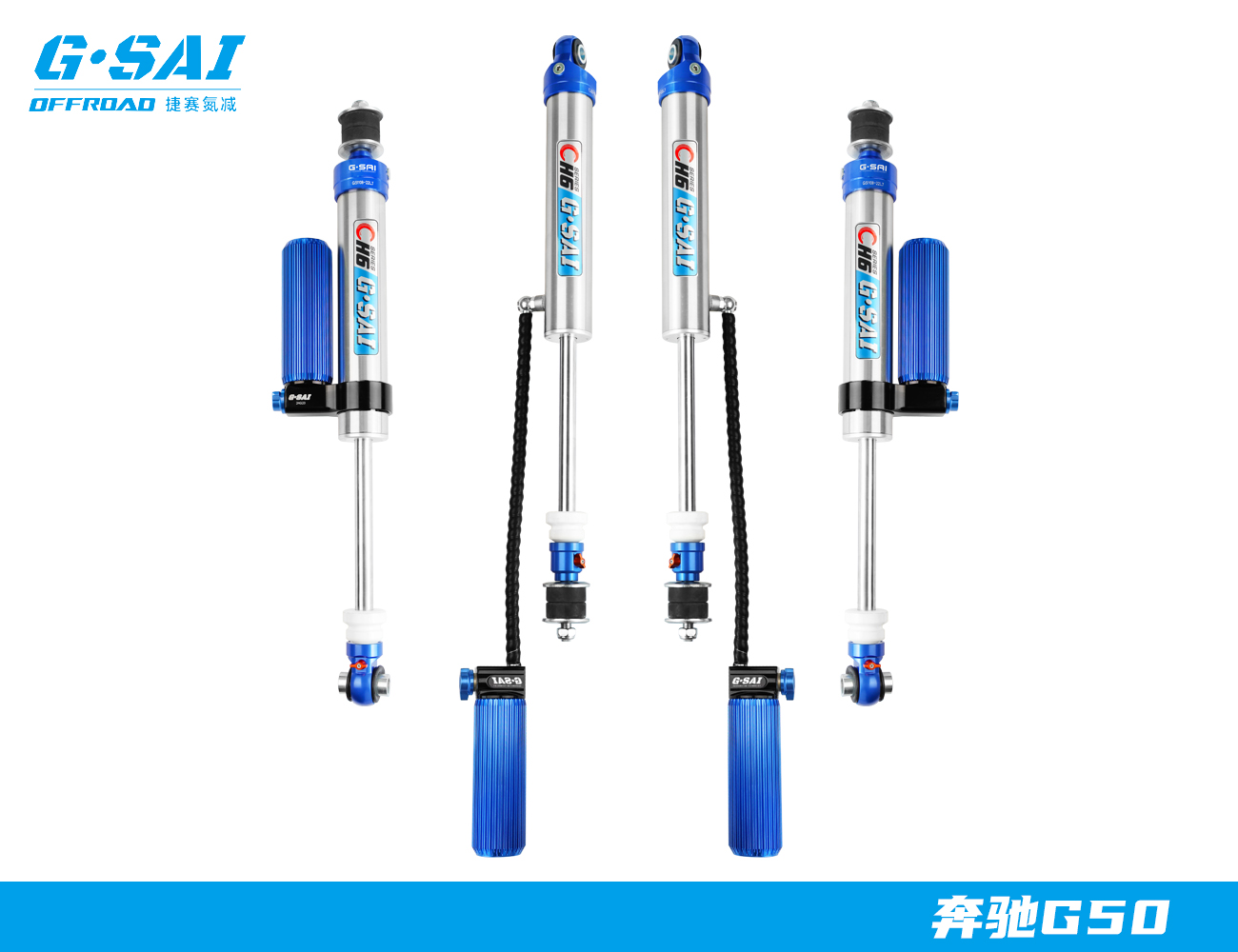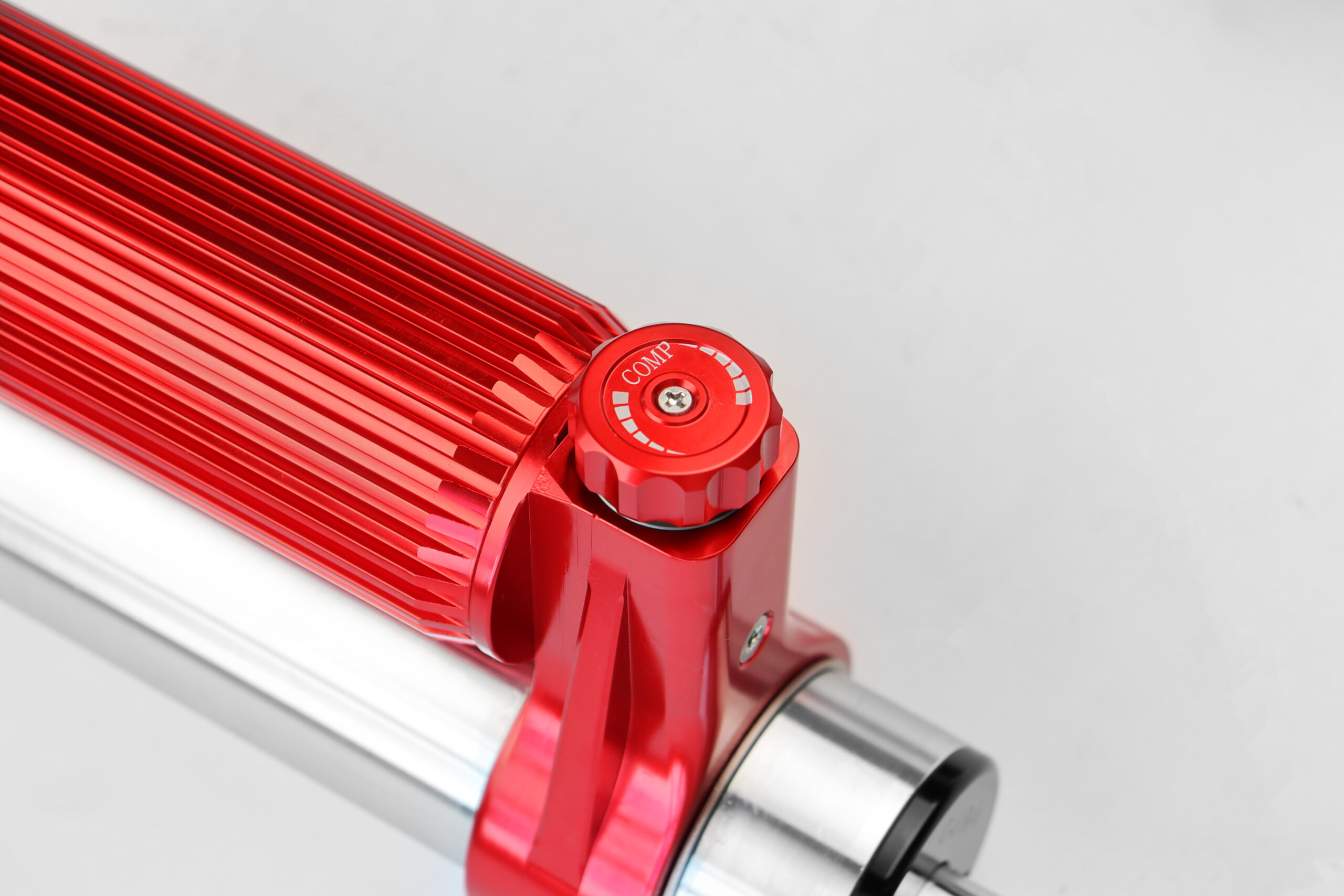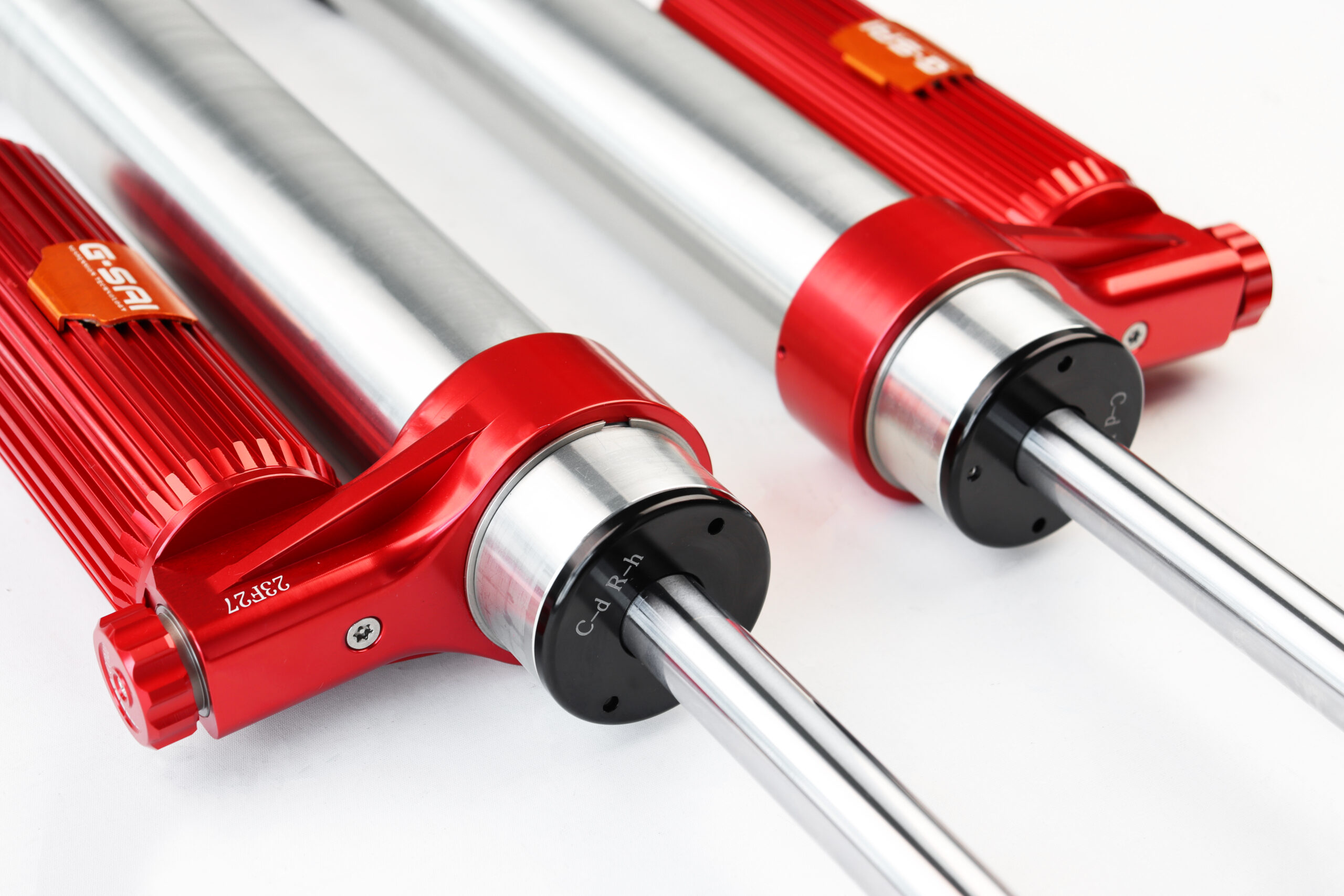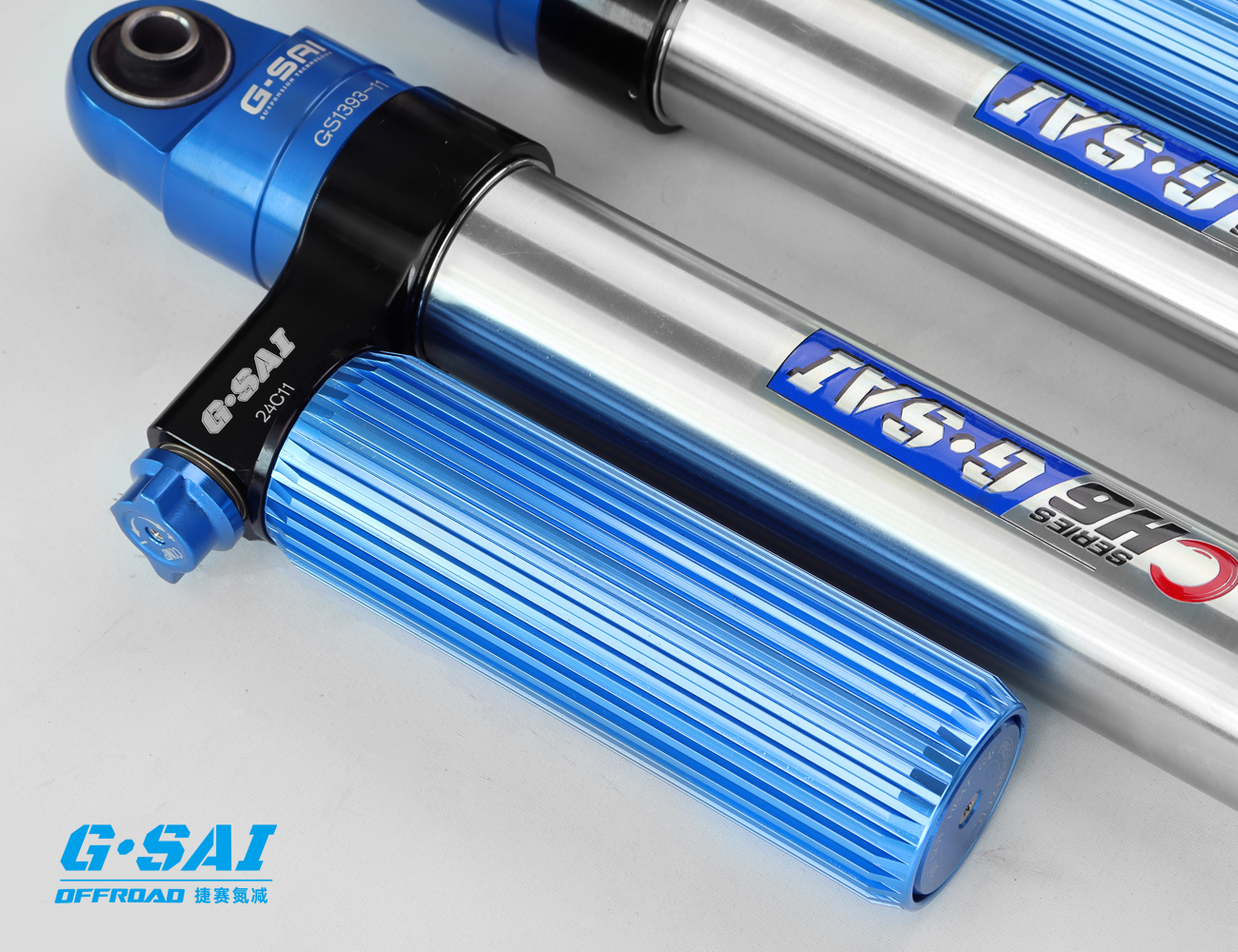How Do I Know If My Suspension Needs Replacement? A Complete B2B Guide for Automotive Professionals
August 30, 2025
Share This Article
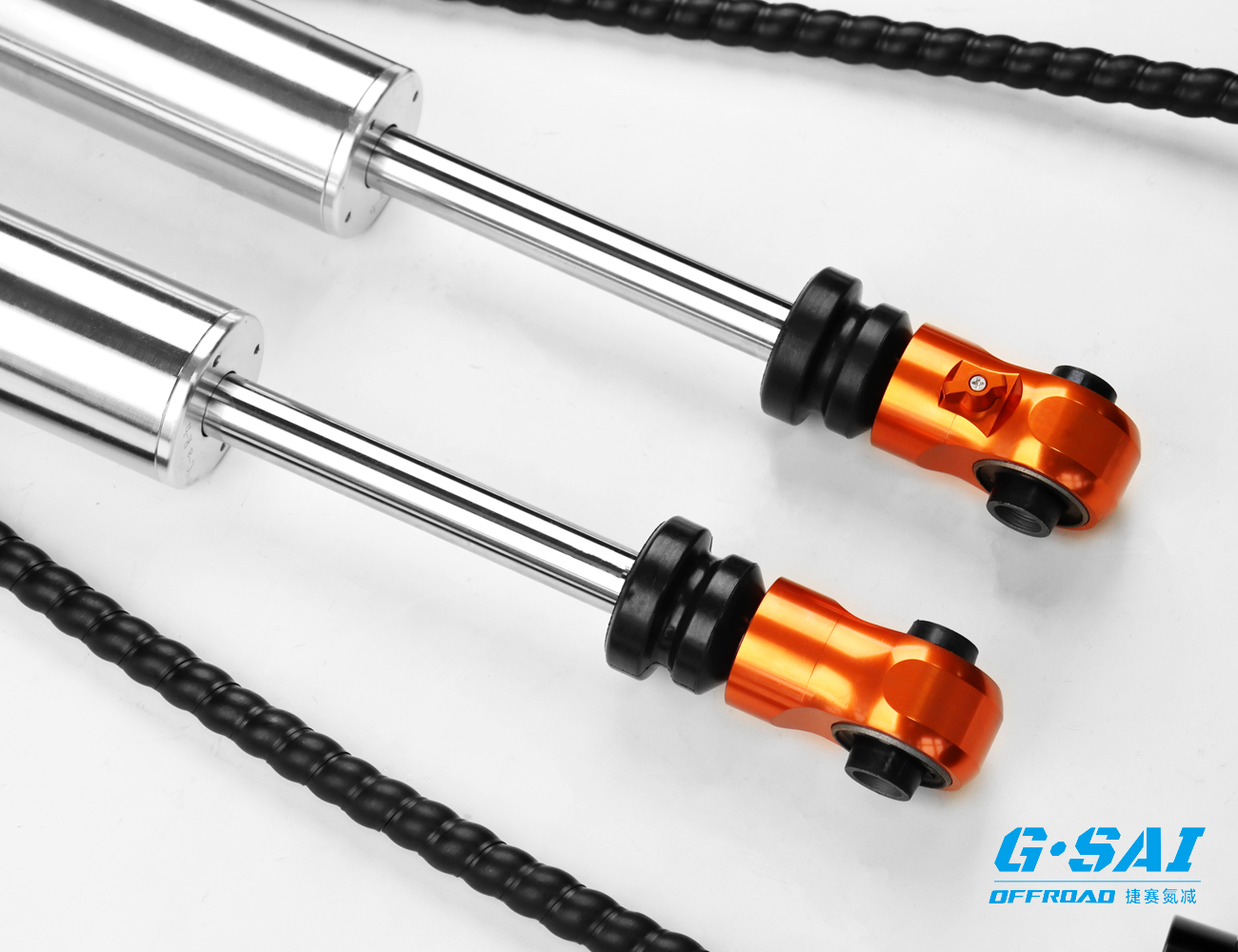
1. What is Suspension and Why Is It Critical for Automotive Performance?
The suspension system is one of the most vital components of any vehicle, especially for off-road racing teams, modified car enthusiasts, RV manufacturers, and automotive brands. It is responsible for ensuring optimal handling, stability, and passenger comfort by absorbing shocks from uneven terrain and maintaining tire contact with the road.
Components of a Suspension System
| Component | Function |
|---|---|
| Shock Absorbers | Dampen the energy from road impacts and control spring movement |
| Springs (Coil/Leaf) | Support the vehicle weight and absorb large bumps |
| Control Arms | Connect suspension to the chassis and allow for movement |
| Struts | Structural component combining shock absorber and coil spring |
| Stabilizer Bars | Reduce body roll during cornering |
Importance for B2B Buyers
For auto parts wholesalers, OEM producers, and custom vehicle builders, understanding suspension systems is crucial for:
- Providing the right parts to clients with diverse vehicle needs.
- Ensuring vehicle safety and performance, especially in rugged or high-speed conditions.
- Enhancing customer satisfaction through quality product offerings.
High-performance suspension systems are especially important for:
- Off-road racing teams needing enhanced stability on uneven terrain.
- RV manufacturers requiring systems that support heavy loads.
- Automotive brands looking to offer superior handling and ride quality.
2. Key Signs Your Suspension System Needs Replacement
Recognizing when a suspension system is failing is essential for avoiding damage to the vehicle and ensuring safety. Below are the most common indicators that your suspension system needs replacement.
1. Uneven Tire Wear
Suspension issues often lead to uneven tire wear, which occurs when the suspension fails to keep the tires aligned. This results in increased costs and reduced tire life.
2. Excessive Bouncing
If the vehicle continues to bounce after hitting a bump, the shock absorbers may be worn out and unable to dampen the spring oscillations.
3. Nose Dives or Squats
When braking or accelerating, a damaged suspension can cause the vehicle to:
- Nose dive (front end dips down when braking)
- Squat (rear end dips when accelerating)
This affects vehicle control and should be addressed immediately.
4. Drifting or Pulling During Turns
Worn suspension components can reduce stability, making the vehicle drift or pull to one side during cornering.
5. Oily or Damaged Shocks
A visual inspection of the shock absorbers can reveal oil leaks or physical damage—both signs that the shocks are no longer functioning properly.
6. Rough Rides
If passengers feel every bump in the road, it’s likely that the suspension system is no longer absorbing impacts effectively.
Summary Table: Suspension Failure Symptoms
| Symptom | Possible Cause | Recommended Action |
|---|---|---|
| Uneven tire wear | Misaligned or worn suspension | Inspect and realign or replace parts |
| Excessive bouncing | Worn shock absorbers | Replace shocks |
| Nose dives/squats | Weak shocks/struts | Upgrade or replace suspension system |
| Drifting while turning | Broken control arms or bushings | Repair or replace control components |
| Oily shocks | Leaking dampers | Replace defective shock absorbers |
| Rough ride | General suspension deterioration | Full suspension inspection required |
3. Suspension Inspection Checklist for Auto Parts Dealers & Repair Shops
For B2B operations like auto repair centers, dealers, and wholesale buyers, a reliable suspension inspection process is essential. This ensures you can service client vehicles accurately or supply the right components.
Visual Inspection Points
- Check for oil leaks on shock absorbers
- Examine springs for cracks, rust, or wear
- Inspect struts for visible damage
- Look for bushing deterioration
- Check control arms for bends or breakage
Functional Tests
- Bounce Test: Push down firmly on each corner of the vehicle. If it bounces more than 2–3 times, the shocks may be worn.
- Road Test: Drive on uneven terrain to assess handling and stability.
- Brake Test: Sudden nosedives indicate strut or shock failure.
Suspension System Inspection Table for Technicians
| Inspection Item | Method | Pass Criteria |
|---|---|---|
| Shock Absorbers | Visual + Bounce Test | No leaks, ≤2 bounces after compression |
| Springs | Visual | No cracks or uneven compression |
| Control Arms | Visual + Manual Check | No bends, solid joints |
| Bushings | Visual | No cracks or excessive flexibility |
| Struts | Visual + Ride Test | No damage or instability during driving |
| Tire Alignment | Digital Alignment Check | Proper camber, caster, and toe settings |
For Wholesalers and Retailers
Having a trained team that can evaluate incoming inventory and advise buyers on replacement timelines helps build trust with B2B customers. It also reduces return rates and boosts sales of high-performance parts.
For example, if you’re working with off-road vehicle fleets, recommending frequent suspension checks (every 30,000–50,000 miles) is a proactive value-add.
For high-performance replacements, G·SAI Shock Absorbers offer advanced engineering tailored to the needs of RVs, racing teams, and off-road vehicles. With over 17 years of custom suspension R&D by chief engineer Cai Xianyun, G·SAI provides shock absorbers that outperform in extreme conditions. You can explore their extensive product line on the G·SAI product page.
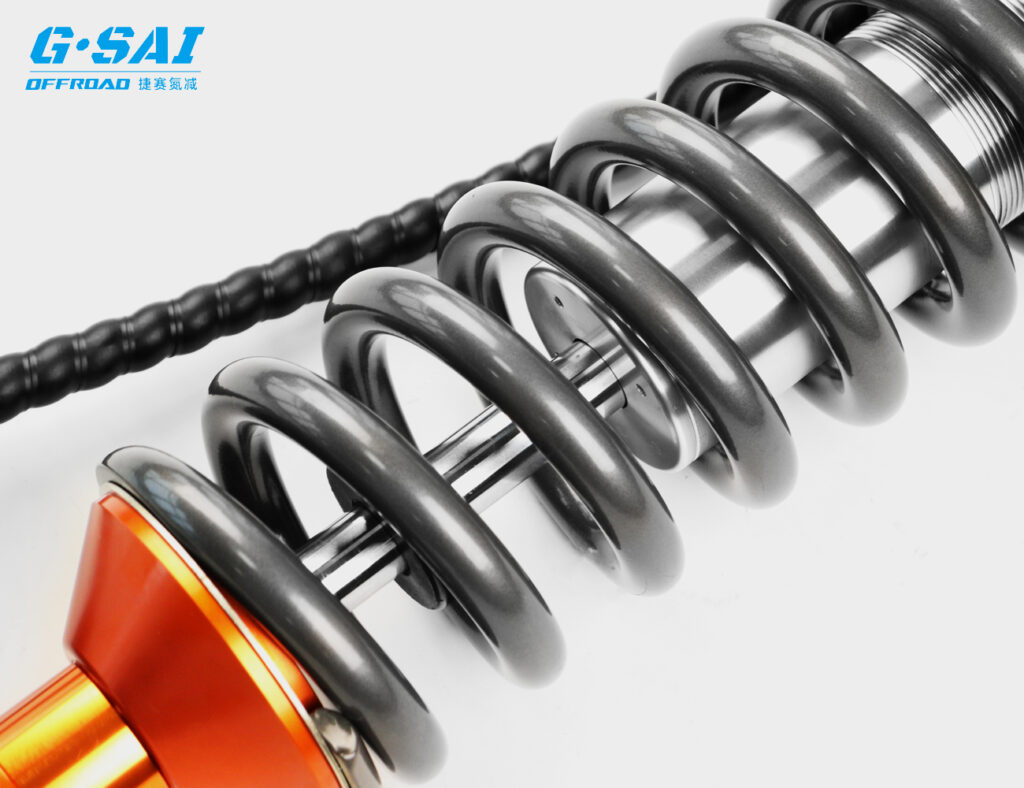
4. Comparing OEM vs Aftermarket Suspension Parts: What Works Best for B2B Buyers?
When it comes to replacing or upgrading suspension systems, especially for businesses in the automotive aftermarket, the choice between OEM (Original Equipment Manufacturer) and aftermarket suspension parts is crucial. Each option has its pros and cons, particularly in B2B scenarios where performance, cost, and availability significantly impact business operations.
Definition Breakdown
| Type | Description |
|---|---|
| OEM Suspension Parts | Components made by or for the vehicle’s original manufacturer |
| Aftermarket Suspension | Parts made by third-party manufacturers designed to fit and function like OEM or better |
OEM Suspension: Pros and Cons
Pros:
- Guaranteed fit and compatibility
- Consistent with vehicle manufacturer specifications
- Easier to source for standard vehicles
Cons:
- Generally higher in price
- Limited customization options
- May not offer performance enhancements for off-road or racing use
Aftermarket Suspension: Pros and Cons
Pros:
- More affordable options for bulk purchases
- Customizable for specific terrains, vehicles, or performance requirements
- Wider range of high-performance upgrades
Cons:
- Quality varies by brand—requires careful supplier selection
- Potential compatibility issues if not properly matched
- May void OEM warranties for some vehicles
B2B Considerations for Wholesalers & Distributors
| Factor | OEM Suspension | Aftermarket Suspension (e.g., G·SAI) |
|---|---|---|
| Cost Efficiency | Low (high cost per unit) | High (bulk pricing available) |
| Customization | Minimal | Extensive (terrain, use-case, vehicle-specific) |
| Performance | Standard | Tuned for racing, off-road, and RV use |
| Lead Time | Longer | Faster with responsive suppliers |
| Brand Differentiation | Low | High—allows private label opportunities |
For businesses like modified car workshops, off-road racing teams, and RV manufacturers, aftermarket shock absorbers provide better ROI, especially when sourced from specialized manufacturers.
One such standout is G·SAI, a leader in customized shock absorber solutions. Their products are engineered for durability and performance and are trusted by top racing teams and RV OEMs across Asia and Europe. Learn more about their engineering capabilities on the G·SAI About Us page.
5. How to Choose the Right Suspension System for Modified and Off-Road Vehicles
Selecting the proper suspension system is critical for both performance customization and vehicle safety. This section will guide B2B buyers—such as wholesalers, auto brands, and race teams—on how to choose the best suspension products for modified or off-road vehicles.
Key Selection Factors
- Vehicle Type and Application
- Is it a high-speed off-road racer, a heavy-duty RV, or a lifted 4×4?
- Choose suspension tuned to the vehicle’s purpose.
- Load Requirements
- Consider gross vehicle weight (GVW), especially for RVs or work trucks.
- Choose shocks and springs that maintain stability under heavy loads.
- Terrain and Environment
- Sand dunes, rocky trails, mountainous regions, or mixed terrain?
- Suspension systems must be optimized for shock absorption and articulation.
- Modifications
- Lift kits, larger tires, engine swaps, or chassis upgrades?
- Custom suspension geometry may be necessary to maintain handling and safety.
- Ride Comfort vs Performance
- Is the priority passenger comfort, aggressive cornering, or rugged durability?
- Suspension tuning can be adjusted accordingly.
Suspension System Fitment Table
| Use Case | Suspension Feature Needed | Recommended Solution |
|---|---|---|
| Off-road racing | Long travel, external reservoir shocks | G·SAI Racing Series Shock Absorbers |
| Lifted 4×4 Trucks | Reinforced control arms, extended shocks | G·SAI Custom Off-Road Suspension Kits |
| Heavy RVs | High-load capacity, dampening control | G·SAI RV Series Shock Absorbers |
| Modified Sports Cars | Precision handling, low profile shocks | Performance Tuned Coilover Kits |
Why G·SAI Is Ideal for Custom Suspension Needs
G·SAI offers tailor-made shock absorbers that match specific vehicle modifications, whether for lifted trucks, rally cars, or expedition-ready RVs. With a dedicated R&D team and simulation testing lab, G·SAI ensures that every suspension system meets or exceeds performance expectations. You can contact their technical team directly here to discuss your vehicle’s setup.
6. Custom Suspension Solutions for Racing Teams and RV Manufacturers
One size does not fit all—especially when it comes to suspension for professional racing teams and RV manufacturers. Customized suspension solutions are no longer optional but a necessity for B2B buyers targeting specific performance outcomes.
Why Custom Suspension Is Critical
- Enhanced Performance: Tailored dampening rates and spring tension for optimal handling
- Safety and Control: Reduced rollovers, better braking response, and improved ride stability
- Longevity: Built to withstand specific stressors like racing heat or RV weight
G·SAI’s Customization Capabilities
G·SAI is a pioneer in custom-built shock absorbers for extreme applications. Their customization process includes:
- Vehicle and terrain-specific tuning
- One-on-one engineering consultation
- In-house prototyping and lab testing
- CNC machining for precision part manufacturing
- Custom branding for OEM and private label clients
Customization Workflow at G·SAI
| Step | Description |
|---|---|
| 1. Requirement Gathering | Discuss vehicle type, terrain, and performance goals |
| 2. Engineering Design | CAD modeling and performance simulations |
| 3. Prototype Development | CNC machining and sample production |
| 4. Testing & Feedback | Lab and real-world environment testing |
| 5. Final Production | Scaled production with strict quality control |
| 6. Branding & Delivery | Packaging, private labeling, and global shipping |
Case Studies
- Desert Rally Team: G·SAI provided nitrogen-charged, external reservoir shocks for a Dakar-style vehicle, resulting in 30% improved stability on high-speed dunes.
- Luxury RV Manufacturer: Customized heavy-duty shocks with variable damping technology allowed for 20% less cabin vibration, increasing customer satisfaction.
To explore G·SAI’s global reach and partner network, visit the Dealer Network page.
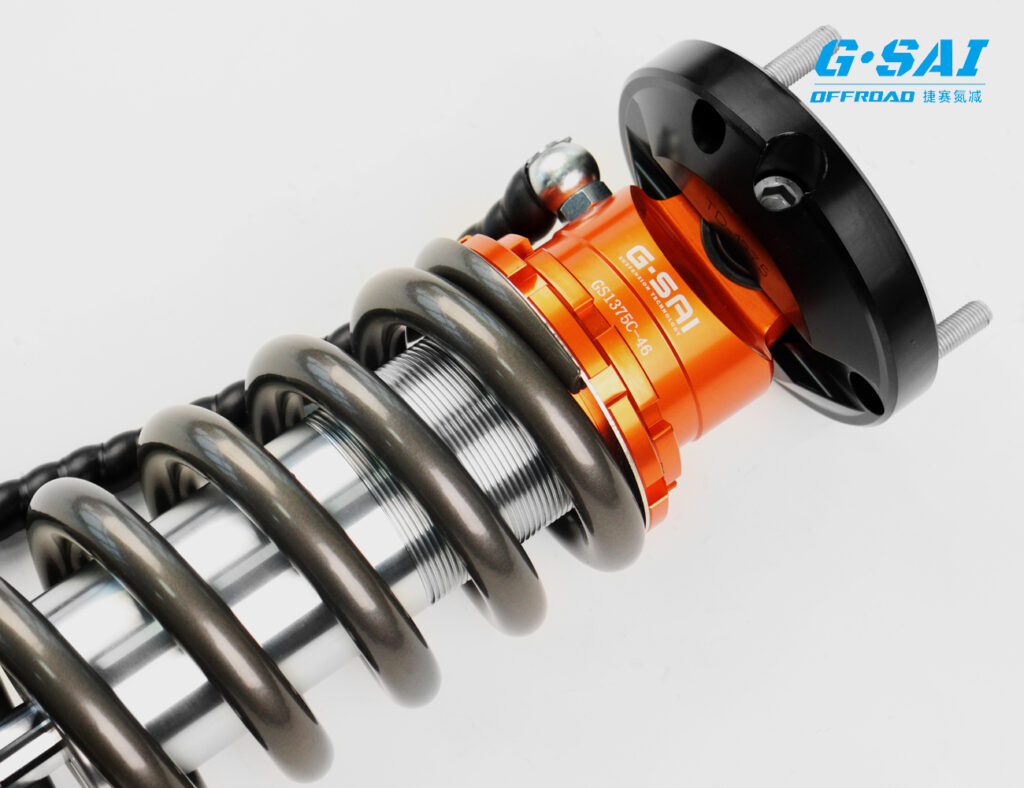
7. Top 5 Suspension Manufacturers for OEM & Wholesale in 2025
For auto brands, off-road racing teams, RV manufacturers, and aftermarket retailers seeking reliable OEM and wholesale suspension suppliers, selecting the right manufacturer is a critical business decision. Factors such as customization capability, production scale, durability, and global distribution define the top-tier players in this space.
Here’s a curated list of the top 5 suspension manufacturers for OEM and wholesale markets in 2025, based on product quality, innovation, and B2B support.
1. G·SAI – China (🇨🇳)
Specialization: Custom high-performance shock absorbers for racing, RVs, and off-road vehicles
Why It’s #1 in China: G·SAI stands out as China’s most trusted name in the field of customized suspension systems. Their advanced engineering, led by Cai Xianyun, who has over 17 years of R&D experience, makes them the go-to manufacturer for B2B buyers who value both performance and reliability.
Key Advantages:
- Precision CNC manufacturing and in-house simulation lab
- One-on-one engineering consultation for OEM clients
- High adaptability to any vehicle or terrain
- Excellent case studies in off-road racing and RV applications
- Custom branding and private label options
Best For:
Automotive brands, off-road racing teams, RV OEMs, and aftermarket parts distributors looking for top-tier suspension systems with scalable production and customization.
🔗 Explore G·SAI’s capabilities: Visit G·SAI Official Website
2. Bilstein – Germany (🇩🇪)
Specialization: High-performance gas pressure shock absorbers
Why It’s Trusted: Bilstein is a globally recognized name in suspension technology, particularly for European sports cars and performance vehicles.
Key Advantages:
- Proven track record in OEM for German automakers
- Superior durability and ride control
- Wide availability in global markets
Best For:
Luxury and performance vehicle brands, high-speed racing teams, and B2B buyers in the premium segment.
3. Fox Racing – USA (🇺🇸)
Specialization: Off-road shock absorbers and racing suspension systems
Why It’s Popular: Fox Racing is synonymous with extreme off-road performance. Their long-travel suspension kits are favored by desert racers and off-road truck builders.
Key Advantages:
- Racing-grade technology with external reservoirs
- Strong presence in Baja and off-road competitions
- Performance-tuned for aggressive terrains
Best For:
Off-road vehicle manufacturers, 4×4 modification shops, and desert racing teams.
4. KYB – Japan (🇯🇵)
Specialization: Mass-market OEM shock absorbers and struts
Why It’s Reliable: KYB is one of the largest manufacturers of OEM shock absorbers globally, supplying brands like Toyota, Nissan, and Honda.
Key Advantages:
- High-volume production with consistent quality
- Cost-effective for B2B buyers with price-sensitive markets
- Broad catalog for Asian and global vehicles
Best For:
Fleet managers, automotive OEMs, and parts distributors seeking OEM-level suspension at competitive pricing.
5. Old Man Emu (OME) by ARB – Australia (🇦🇺)
Specialization: Suspension kits for overland and expedition vehicles
Why It’s a Niche Leader: OME focuses on long-distance, heavy-load off-road travel, making them a favorite among overlanding enthusiasts and commercial vehicle builders.
Key Advantages:
- Suspension systems tuned for long-range travel
- Specialized kits for Toyota Land Cruiser, Hilux, and similar platforms
- Strong presence in Africa, Australia, and South America
Best For:
Expedition vehicle builders, overland outfitters, and adventure vehicle brands.
8. Bulk Suspension Orders: B2B Tips for Auto Parts Distributors and Brands
Bulk ordering suspension systems—whether for retail inventory, OEM production, or fleet replacement—can offer substantial cost savings and supply chain advantages. However, it requires strategic planning, supplier collaboration, and systemized logistics.
Here are expert B2B tips for managing bulk suspension orders effectively.
1. Define Your Product Requirements
Before placing any order, you must clearly define:
- Vehicle compatibility (make, model, year)
- Terrain or usage (off-road, RV, performance, fleet)
- Volume required per SKU
- Branding requirements (if private label)
2. Choose the Right Supplier
Prioritize suppliers who offer:
- MOQ flexibility
- OEM/ODM capabilities
- Fast lead times
- Quality certifications (ISO, TS16949, etc.)
- After-sales support
For example, G·SAI provides tailored bulk solutions with engineering customization, branding support, and a proven production infrastructure. Their ability to scale without compromising quality makes them ideal for B2B orders. Reach out to G·SAI for wholesale inquiries.
3. Plan Logistics in Advance
Bulk orders require efficient logistics to avoid delays and cost overruns.
- Use FOB or CIF terms depending on your customs handling ability
- Consolidate shipments where possible
- Track container loads and customs documentation
- Consider bonded warehousing for international distribution
4. Monitor Inventory Turnover
Avoid overstocking by analyzing your sales velocity and reorder cycles.
| Metric | Goal |
|---|---|
| Inventory Turnover Ratio | 6–12 times/year (ideal range) |
| Stock-Out Frequency | <5% |
| Lead Time Buffer | 15–20% of average delivery time |
5. Evaluate Cost vs Value
Don’t just focus on low pricing. Consider:
- Product lifespan
- Warranty terms
- Customer satisfaction
- Return rates
A mid-range priced suspension system that lasts twice as long can offer better ROI than budget parts.
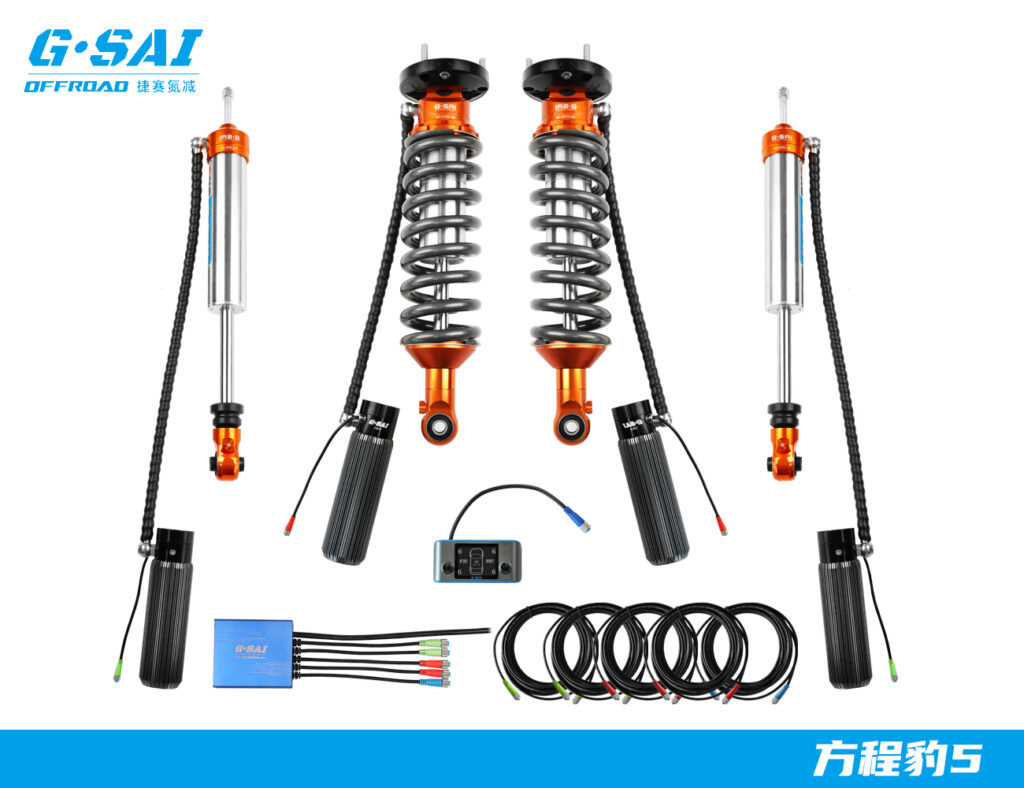
9. Frequently Asked Questions (FAQ)
Q1: What is the average lifespan of a suspension system?
Answer: For standard vehicles, the suspension typically lasts 50,000 to 100,000 miles. However, for off-road or high-stress applications, suspension components may require inspection or replacement every 30,000–50,000 miles.
Q2: How do I know if a shock absorber is worn out?
Answer: Common signs include:
- Excessive bouncing after bumps
- Uneven tire wear
- Leaking fluid around the shock
- Increased stopping distance
- Rough rides and poor handling
Q3: Can I get custom shock absorbers for my off-road vehicle?
Answer: Absolutely. Manufacturers like G·SAI specialize in custom shock absorbers tailored for specific vehicles, terrains, and racing conditions. They provide full engineering consultation and in-house prototyping. Learn more about their custom solutions.
Q4: Is it better to use OEM or aftermarket suspension?
Answer: It depends on the application. OEM is suitable for general-purpose vehicles, while aftermarket—especially from specialized brands—offers better performance and customization for off-road, RV, and racing applications.
Q5: How can I become a distributor for G·SAI?
Answer: G·SAI offers partnership opportunities for global distributors and B2B clients. You can review their dealer network and submit your application through their dealer network page.
Final Thoughts
Understanding when and why a suspension system needs replacement is essential—not only for vehicle safety but also for maintaining customer trust and product performance. For B2B buyers, whether you’re a wholesaler, a parts distributor, or an off-road racing team, choosing the right suspension system can make or break your brand reputation.
By partnering with a proven manufacturer like G·SAI, you gain access to premium, customizable, and scalable suspension solutions backed by advanced R&D and decades of expertise. Explore the full range of products and services at the G·SAI official site.
📩 Ready to source high-performance suspension systems? Get in touch with G·SAI today to request a catalog, discuss customization, or place a bulk order.
Additional FAQs on Suspension Replacement (B2B)
- Q: What objective thresholds indicate a suspension needs replacement rather than repair?
A: Any damper oil leak, >2 bounces after a bump, tire cupping/scalloping, or vertical acceleration RMS rising >15% vs. route baseline. Also replace if hot force–velocity curves drop >20% vs. spec. - Q: How does EV mass change replacement timing?
A: Heavier curb weight and regen braking increase heat and bushing loads. Expect earlier replacement intervals unless using higher-rebound, large-piston dampers and reinforced bushings. - Q: Can alignment alone fix uneven tire wear if shocks are tired?
A: No. Alignment without restoring damping only masks symptoms. Replace worn shocks/struts first, then align under loaded ride height. - Q: Should fleets replace in pairs or all four?
A: Minimum pairs (front or rear). High-duty or safety-critical vehicles benefit from all-four replacement to ensure balanced handling and braking. - Q: What documentation reduces comebacks after replacement?
A: QR-linked install SOPs, torque-at-ride-height charts, hot/cold dyno plots, loaded alignment targets, and baseline clicker maps (if adjustable).
2025 Industry Trends: Data-Driven Suspension Replacement
- Telematics-linked PM: Fleet systems auto-flag rising vibration and ABS/ESC events to trigger inspections.
- Hot-dyno normalization: Suppliers publish temperature-dependent force–velocity data to predict fade and set intervals.
- EV-specific valving: Higher rebound bias and high-VI fluids extend intervals on electric vans and buses.
- Corrosion-first spec: Zn–Ni/e-coat hardware reduces seized fasteners that inflate labor costs at replacement.
- Standardized SOPs: QR-packaged procedures reduce installer variance and warranty claims.
Replacement Indicators and Adoption (2023–2025)
| Metric | 2023 | 2024 | 2025 (est.) | Notes/Source |
|---|---|---|---|---|
| Fleets using vertical accel RMS as a replacement KPI | 15% | 22% | 33% | Geotab/fleet surveys |
| Suppliers publishing hot/cold damper curves | 23% | 31% | 45% | Catalog audits; SAE |
| EV fleets specifying rebound-biased dampers | 10% | 16% | 26% | OEM disclosures |
| Snowbelt fleets requiring ≥720 h ASTM B117 hardware | 39% | 47% | 59% | Purchasing specs; ASTM |
| Installers using QR-linked install/alignment SOPs | 21% | 29% | 42% | Distributor programs |
References: SEMA Market Research (https://www.sema.org/research), SAE Technical Papers (https://www.sae.org/), Geotab (https://www.geotab.com/), ASTM Standards (https://www.astm.org/), Racecar Engineering (https://www.racecar-engineering.com/)
Latest Research Cases
Case Study 1: Telematics-Based Replacement Lowers Tire Costs in Mixed ICE/EV Fleet (2025)
Background: A parcel fleet faced late detection of damping loss leading to tire cupping and longer stops.
Solution: Deployed accelerometer RMS and ABS event monitoring; set work orders at >15% RMS rise or repeated shock temp >115°C; adopted rebound-biased dampers for EVs.
Results: Tire irregular wear claims −23%; suspension-related downtime −19%; average detection 1,100 km earlier than driver reports.
Case Study 2: Hot Dyno Screening Prevents Premature Replacements at Dealer Network (2024)
Background: High “bad ride” returns post-install. Root cause unclear (parts vs. install).
Solution: Implemented hot (110°C) vs. cold dyno verification for suspect units; mandated torque-at-ride-height and loaded alignment SOPs via QR.
Results: Comebacks for ride complaints −34%; confirmed part defects 1.9% (down from 4.2% presumed); warranty labor hours −18% in two quarters.
Expert Opinions
- Dr. Thomas D. Gillespie, Vehicle Dynamics Author: “Replace based on temperature-stable force data and measured vibration, not mileage alone. Hot performance determines real-world control.”
- Stephanie Brinley, Principal Analyst, S&P Global Mobility: “Electrified fleets shift replacement economics—spec EV-ready damping to maintain ADAS reliability and cut total cost of ownership.”
- Dave Polke, ASE Master/L1 Technician and Trainer: “Most post-replacement comebacks are install errors—torque bushings at ride height, align under load, and document clicker baselines.”
Practical Tools and Resources
- SAE Mobilus (damper testing, thermal effects): https://www.sae.org/
- Geotab (vibration/ABS event KPIs for PM): https://www.geotab.com/
- Racecar Engineering (interpreting shock dyno data): https://www.racecar-engineering.com/
- ASTM B117 (corrosion) and D445/D2270 (viscosity/VI): https://www.astm.org/
- Hunter Engineering (loaded alignment procedures): https://www.hunter.com/
- Benchmark catalogs/specs: https://www.ridefox.com/, https://www.bilstein.com/, https://www.kingshockstech.com/
Last updated: 2025-10-09
Changelog: Added 5 FAQs focused on suspension replacement indicators; 2025 trend table with adoption metrics; two recent case studies (telematics and hot-dyno SOPs); expert viewpoints; curated tools/resources with authoritative links
Next review date & triggers: 2026-03-31 or earlier if SAE issues new hot-dyno standards, telematics KPI benchmarks shift, or EV fleet data changes recommended replacement thresholds by >15%

